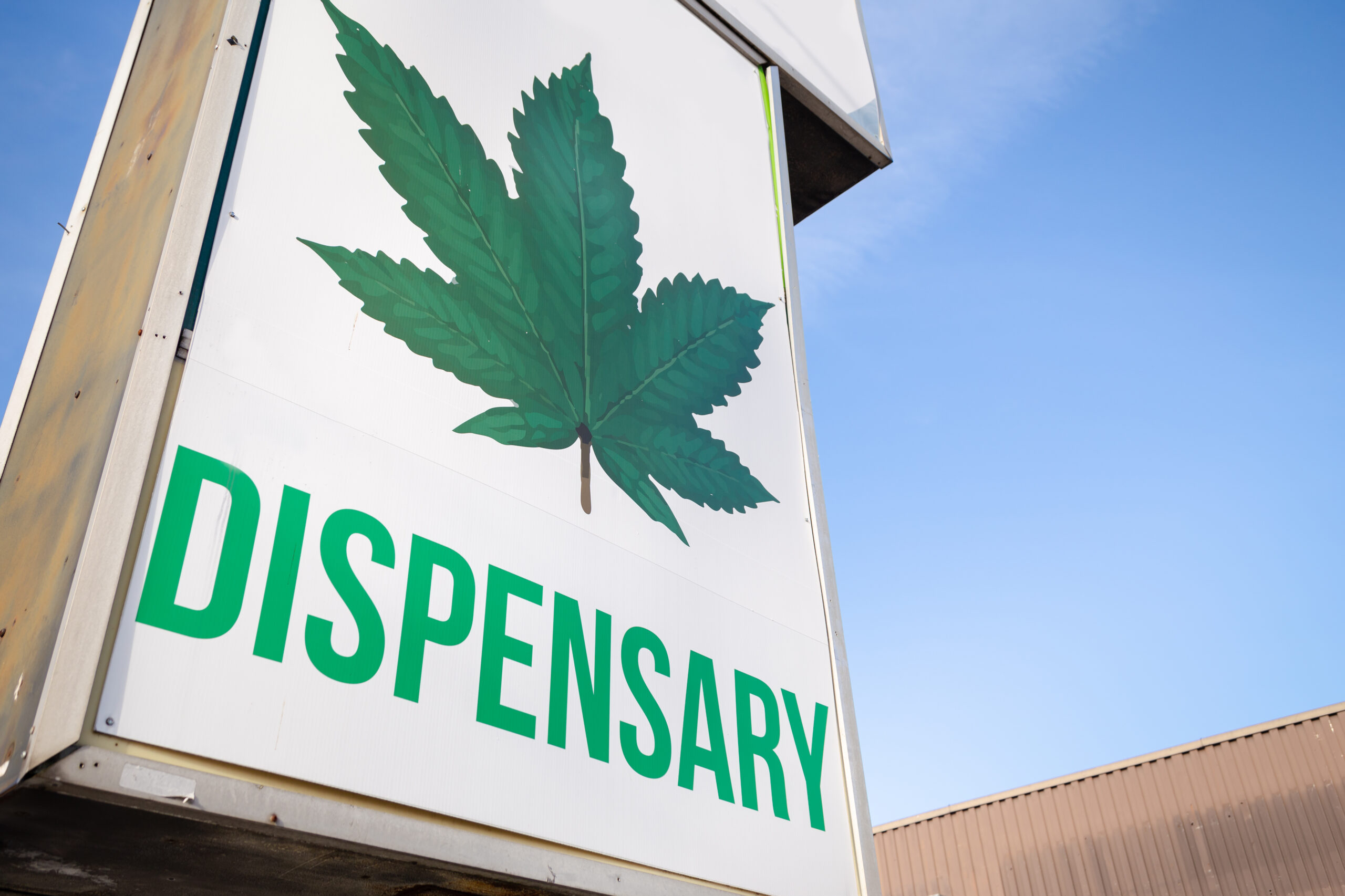Connect with us
Published
4 months agoon

It’s a notable time for cannabis reform, as states have increasingly introduced adult-use legislation in recent years and are steadily embracing their budding markets. The East Coast is a particularly hot hub for cannabis legalization, and while New York continues a slow start for its industry after a number of legal delays, neighboring New Jersey seems to be moving steadily forward based on 2023 numbers.
New Jersey became the 14th state to legalize cannabis for adult use on Feb. 22, 2021, when Gov. Phil Murphy (D) signed a number of bills relating to recreational cannabis legalization. The legislation went into effect in April 2022, and at the time, only 22 recreational dispensaries were open and ready to serve the Garden State’s 9.3 million residents. Most of those locations were also largely corporate cannabis companies, or multi-state operators.
In 2023, New Jersey saw that added nearly triple that amount, ushering in another 57 licensed, operational dispensaries throughout the year, according to New Jersey Monitor.
That means that the state currently has at least 79 dispensaries serving recreational customers throughout its 18 counties, with 40 open to both medical patients and recreational customers and an additional nine dispensaries solely for medical cannabis users.
Cannabis sales in New Jersey were also strong, totaling $578 million for the first three quarters of the year with details on the final quarter expected sometime in January. Jeff Brown, executive director of the state’s Cannabis Regulatory Commission, said that he expects sales to reach $1 billion in 2024.
And it appears that this is just the beginning of an expansion trend for New Jersey cannabis. According to the New Jersey Cannabis Regulatory Commission (CRC), another 16 retailers, five cultivators, three manufacturers, one wholesaler, two distributors and two delivery services received conditional licenses in December, which should situate them to open for business sometime in 2024.
Brown also said that he expects regulations for consumption lounges to be approved this year, while will allow dispensaries to offer additional areas for customers to use cannabis products they buy on the premises. Brown indicated that consumption lounges may present additional growth opportunities for cannabis businesses.
“It was a successful year for New Jersey’s growing cannabis market, affirming the efficacy of our approach to building a market on a framework of social equity and public safety,” Brown said in a statement.
While prospects are looking strong for the state’s emerging cannabis industry, New Jersey isn’t immune to certain struggles. The state still has some of the most expensive cannabis prices in the country which have yet to budge, largely because the majority of cannabis comes from the same in-state cultivators. An ounce in a legal New Jersey dispensary can cost as much as $400 with taxes and fees, while an ounce of flower from the underground market runs around $150 to $200.
Operators have also pointed to the state’s restrictions when it comes to product types as one reason prices remain high, namely in that the edible selection is limited to “syrups, pills, tablets, capsules, and chewables.” It’s possible that these regulations will change in the future, though, as the CRC recently concluded a public comment period on a regulatory modification that would allow dispensaries to sell single-serving beverages, chocolates, gummies, baked goods and more.
Brown indicated that the commission will ultimately approve that proposal and pointed to the increasing number of legal shops as an eventual solution, saying that higher competition will eventually drive down prices.
While the state continues to issue new licenses, the Monitor also explored some of the roadblocks applicants and business owners have encountered as they look to open for business.
For one, two-thirds of New Jersey municipalities have banned cannabis dispensaries without their borders, limiting options for prospective cannabis business owners and operators. These types of barriers, on top of application delays, have kept some applicants in a state of limbo while also increasing their debt as they look to open.
Commission officials have also pointed the finger at local officials limiting dispensary openings, saying this has prevented New Jersey’s cannabis industry from reaching its full potential.
In December, cannabis attorney Chirali Patel told commissioners that there is “no accountability at the local level,” adding, “I understand discretion, but I have people who have submitted hundreds of pages of applications for consideration that haven’t even been given a hearing, let alone a reason for denial.”


Study Reveals State Cannabis Legalization Lowers Immigrant Deportation


DEA Challenges Bid To Use Psilocybin Under ‘Right To Try’ Legislation


Vegans Rejoice as Farmers Switch from Chickens to Hemp


Louisiana Legislative Committee Unanimously Passes Adult-Use Cannabis Framework Bill


Louisiana House Bill to Regulate Hemp Products Advances Along With Senate Bill to Ban


Cresco Labs Workers Reportedly De-Unionize
